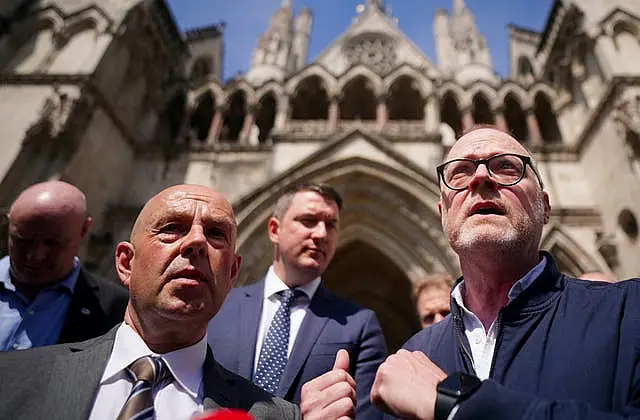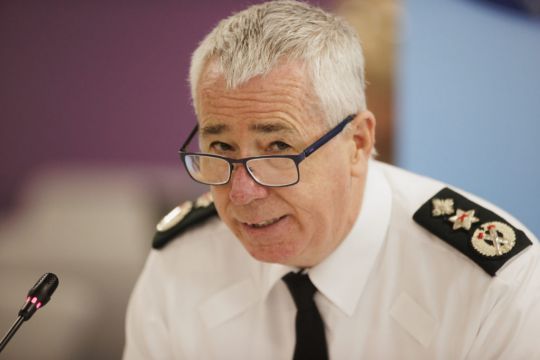Police Service of Northern Ireland (PSNI) chief constable Jon Boutcher has said he will discuss “commentary” around the force’s use of surveillance powers with his oversight body.
A hearing of the Investigatory Powers Tribunal (IPT) in London on Wednesday heard claims that police in Northern Ireland undertook six-monthly trawls of the phone data of “troublemaker” journalists to see if they were in contact with officer sources.
It came during a hearing of a case examining allegations that investigative reporters Barry McCaffrey and Trevor Birney were subject to unlawful covert intelligence by the police.

Mr Boutcher said the PSNI would co-operate fully with the IPT hearing but said he wanted to wait until that process concludes before “speculating about what might or might not have happened in the past”.
The Northern Ireland Policing Board, the oversight body for the PSNI, said on Thursday an urgent meeting had been sought with Mr Boutcher over the IPT claims.
Board chair Mukesh Sharma and vice chair Brendan Mullan said they wanted to “seek further clarification and assurance around whether surveillance powers have been used lawfully, proportionately and appropriately in the past”.
In response, Mr Boutcher said he would meet Mr Sharma and Mr Mullan on Wednesday to discuss a number of matters.
He said this would include “the recent media commentary around the ongoing Investigatory Powers Tribunal”.
Mr Boutcher said: “The Police Service of Northern Ireland will continue to co-operate fully with the IPT and I ask that we wait for that process to conclude before speculating about what might or might not have happened in the past.
“I have written to various bodies that have expressed concern due to the media reporting to reassure them about how the Police Service of Northern Ireland conducts surveillance.”
Evidence presented to the tribunal on Wednesday suggested PSNI spying operations extended to several other reporters operating in the region.
The National Union of Journalists (NUJ) has accused the PSNI of “shocking and despicable” behaviour, and called for the service to “come clean”.







